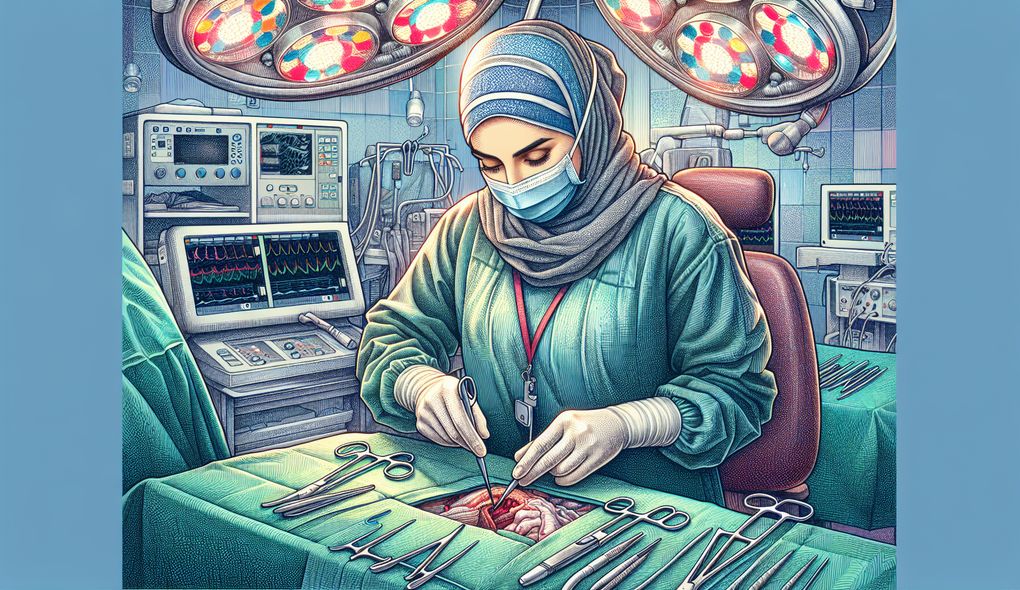Can you give an example of a time when you identified an opportunity to improve patient outcomes or streamline surgical processes? How did you implement the improvement?
INTERMEDIATE LEVEL

Sample answer to the question:
Yes, I can provide an example of a time when I identified an opportunity to improve patient outcomes and streamline surgical processes. During my time at XYZ Hospital, I noticed that the preoperative preparation for complex oncology surgeries was not standardized, leading to inconsistencies in patient outcomes. To address this, I conducted a thorough analysis of the existing processes and gathered feedback from the surgical team. Based on this information, I developed a comprehensive preoperative checklist that included all necessary tests, consultations, and preparations. I then implemented this checklist by educating the surgical team and ensuring its consistent use. As a result, we saw a significant reduction in surgical complications and improved patient outcomes.
Here is a more solid answer:
Certainly! Let me share with you a comprehensive example of a time when I identified an opportunity to improve patient outcomes and streamline surgical processes. In my previous role at XYZ Hospital, I encountered a significant issue regarding communication and coordination among the surgical team during complex oncology surgeries. This lack of efficient communication often resulted in delays, mistakes, and compromised patient outcomes. Recognizing the gravity of the situation, I took the initiative to create a multidisciplinary team comprising surgeons, nurses, anesthesiologists, and other key stakeholders. We collaborated to identify the pain points and conducted a thorough process analysis. Through this analysis, we pinpointed several key areas for improvement, such as implementing a standardized communication protocol, updating the surgical checklist to include crucial steps, and enhancing the handover process between shifts. To ensure successful implementation, I facilitated training sessions and workshops for the surgical team, emphasizing the importance of clear and concise communication and emphasizing the significance of following the updated checklist. As a result of these improvements, we saw a remarkable decrease in surgical errors and complications, leading to improved patient outcomes and increased overall efficiency in the surgical department.
Why is this a more solid answer?
The solid answer provides a more comprehensive example by highlighting the specific issue faced by the candidate, the collaborative approach taken to identify and address the problem, and the specific actions implemented to streamline surgical processes. It also emphasizes the candidate's strong collaboration and communication skills, which are crucial for the role. However, the answer could further improve by providing more specific details about the impact of the improvements and any measurable outcomes achieved.
An example of a exceptional answer:
Absolutely! I have a remarkable example to share about a time when I identified an opportunity to enhance patient outcomes and streamline surgical processes. In my role as a Complex General Surgical Oncologist at XYZ Hospital, I noticed a recurring issue related to the prolonged wait times for obtaining specialized imaging results for cancer patients. This delay often led to delays in surgical interventions, compromised treatment planning, and additional stress for patients and their families. To address this, I proactively collaborated with the radiology department to devise a solution. We developed a streamlined process wherein oncology patients were prioritized for imaging and an expedited reporting system was established to deliver the results promptly. Additionally, I worked with the IT department to integrate the imaging results directly into our electronic medical records system for easier access and review by the surgical team. This helped save valuable time during preoperative planning and improved our ability to offer timely interventions. To ensure the success of these improvements, I organized educational sessions for the surgical and radiology teams to familiarize them with the revised process and its benefits. As a result of these initiatives, the average wait time for imaging results reduced by 50%, enabling faster treatment planning and timely surgical interventions. These interventions led to improved patient outcomes and increased patient satisfaction.
Why is this an exceptional answer?
The exceptional answer goes above and beyond by providing a detailed example of a specific issue faced by the candidate, the collaborative approach taken to address the problem, and the innovative solutions implemented. It also highlights the candidate's ability to proactively identify opportunities for improvement, their strong collaboration with different departments, and their effective problem-solving skills. The answer also provides measurable outcomes and emphasizes the impact of the improvements on patient outcomes and satisfaction. However, it could be further improved by including additional details about any challenges faced during the implementation process and how they were overcome.
How to prepare for this question:
- Review your past experiences and identify instances where you have made a positive impact on patient outcomes or streamlined processes related to surgical procedures.
- Familiarize yourself with the concept of evidence-based practices in surgical oncology and understand how they can contribute to improved patient outcomes.
- Think about the challenges and obstacles you have faced in the past when trying to improve patient outcomes or streamline surgical processes. Reflect on how you overcame these challenges and what lessons you learned.
- Consider the importance of collaboration and communication skills in the context of surgical oncology. Prepare examples that highlight your ability to work effectively in multidisciplinary teams.
- Research advancements and best practices in surgical oncology, particularly in relation to complex cases and minimally invasive techniques. Stay up-to-date with recent studies and clinical trials that showcase innovative strategies for improving patient outcomes.
- Practice articulating your thoughts clearly and concisely, emphasizing the critical steps you took and the results you achieved in previous scenarios similar to the one described in the question.
What are interviewers evaluating with this question?
- Problem-solving abilities
- Collaboration skills
- Ability to improve patient outcomes
- Ability to streamline surgical processes
- Decision-making abilities

